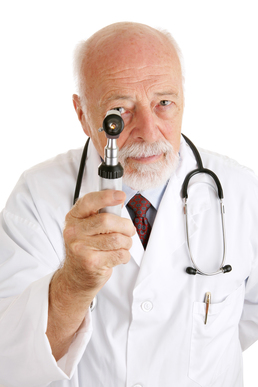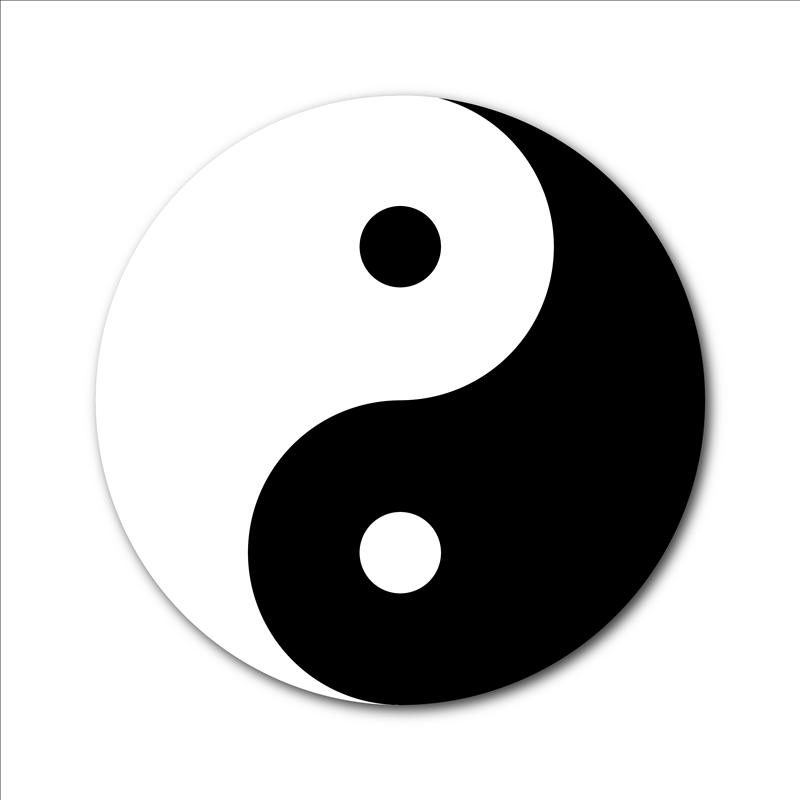Guest post by Lauren Breau, L.Ac, acupuncturist at Wildwood Community Acupuncture
So, an acupuncturist walks into a bar …
Actually, just kidding. This acupuncturist isn’t walking into any bar, seeing as I’m on my 3rd day of Zithromax for a nasty cold that turned into a sinus infection and sent me running into the arms of biomedicine.
Yes, I get sick occasionally. And yes, I see my doctor when I have no more tricks to pull from my hat, and in this particular situation, I needed the help of my stethoscoped, lung-listening doctor who said “Hmmm” when he shone his light into one nostril and “Ahhhh” when he shone it into the other.
Health is an endlessly fascinating topic — and my relationship with it is constantly evolving, both as a practitioner and a regular ol’ human. Since I work in a community clinic that treats all patients regardless of income or insurance status, I see about 100 people a week. My patients are a decent cross-section of the population, which means I’m reminded daily that people have vastly different ways of conceptualizing health.
This also means that about a dozen times a day I’m asked very challenging questions about health and illness. Patients ask me about what they should eat, they ask me about what they should do for exercise — they want to know if they should take specific vitamins or herbs or whether or not they should eat meat. They occasionally ask the most loaded question of all: Do you think acupuncture can fix me?
Like my nostril-gazing biomedical doctor, my first response is to want to say “Hmmm.”
I can say this — I do believe that we have an inherent capacity for maintaining personal health. Of course, everyone needs extra help when his or her health takes a dive or continues to dip in the form of a chronic disease. The only homogenized answer I can give, when it comes down to the question of how to embody health, is something like this: There are many ways to maintain your personal health and if anyone ever tells you that their way is the only way … RUN!
I can already hear cries of contention, so let me explain in more detail. Of course, there are some general pieces of advice that we’d all be keen to follow and I’m sure you’re familiar with them. You know, the basic stuff: eat fiber, move your body, don’t stay in crappy relationships. There are basic building blocks to healthy living — but these aren’t the kinds of answers for which my patients are looking. People want cold hard specific advice, unwavering guidelines by which to live. In other words, if you know the rules of the game, your chances of winning are increased. So, tell me … how can I live forever?
Here’s the tricky part. It’s an essential tenet of Traditional Chinese Medicine to recognize difference. In other words, an acupuncturist or Chinese herbalist would never in a million years expect to give two patients the same treatment or the same dietary advice or the same exercise regimen. There is no “one size fits all” concept in Traditional Chinese Medicine. There is, however, a fundamental belief that we arrive at the playing board with a host of strengths and weaknesses that are highly individualized. Combine that with the thousands of smaller choices we make on a daily basis and suddenly you’ve got an awesomely complex puzzle standing in front of you, wondering if he/she should consume 10 pounds of kale a week because this one website said (insert inflated claims).
Since I’m completely incapable of writing one of those awful generic lists you’ll so often stumble across (e.g., 10 Things You Can Do To Stay Healthier, Skinnier and Richer Than Your Neighbor), I’ve created a list of some of the patterns and roadblocks I’ve observed in the community clinic setting — the kinds of unhealthy thinking that seem to interfere with my patients’ ability to get well.
I will say that the most common roadblock is a relatively simple one. I’ve observed that health suffers most when patients lose their ability to trust themselves and forget the fact that they know their body best. Their ability to tune in to that small, quiet voice within — that inherent capacity to answer their own basic questions of how to embody wellness — is often slowly, yet incessantly drowned out by a culture that too often breeds shame, judgment and unreal expectations. Combine that with a barrage of conflicting information on health and you’ve got one seriously discouraged patient — understandably so. They stop listening to everything, including their own internal healing capacity.
Figuring out what it is that your body needs and advocating accordingly (seeking help that best suits your needs) is the first thing to do if you’re not feeling well. That being said — I understand that finding help can be incredibly difficult since the state of our health care system is abysmally unfair to many (most). But try not to shrink away from finding health — instead, make a clamor! Speak loud and proud about the fact that you are looking for help and be specific. The more honest you are about your needs, the more likely it is that someone who can help you will hear your grievances and extend a hand.
Now — some real life examples about what I’m talking about since everyone loves an anecdote!
COMMON QUESTIONS ASKED BY MY PATIENTS
What should I eat?
Check out this scenario!
Patient: “I am craving orange things — tangerines, sweet potatoes and carrots — but my extreme
Please, for the love of Bob — if you are having a sweet craving and you can fulfill it with a sweet potato instead of eating a bag of Cadbury mini eggs … do it. Your body is probably urging you to increase your levels of Vitamin C and Vitamin A (and a bunch of other body-loving nutrients). Yes, we all experience addictive cravings for food that will not bring health, but those cravings can be differentiated from the body’s messages for the foods it truly needs. I bet you can tell the difference.
What should I do for exercise?
It’s not necessary to do 1000 crunches and 10 minutes of planks on your lunch break because your buddy told you that’s what you MUST DO to get ripped abs like his — abs, by the way, that would be sexier if he didn’t have all those anger management issues, right?!
Walking is great. Walking with an audio book is crazy awesome. Raking leaves is tough work! So is doing three loads of laundry with an infant strapped to your chest. In other words, do the kind of exercise that comes with the kinds of rewards that are right for you.
Why am I so tired?
I’m going to answer this one and I’m going to direct my answer to women. Women make up about 65 percent of our patient base at the community clinic and they are some of the kindest, hard-working, crazy-tough people I know — they are also some of the most burnt out. And women with kids? Phew!
If I come across another mom blog in which the author can’t stop blabbing about how AH-MAY-ZING it is to sacrifice absolutely everything for her family, I’m going to pull the hair right out of my head and never laugh again. Sacrifice is part of parenthood. I get it. But glorifying sacrifice tends to breed unnecessary sacrifice. Though it might come with an (irrational) surge of shame and embarrassment, ASK FOR HELP and SAY NO IF YOU DON’T HAVE THE EXTRA TIME.
Because once you’ve got some time for yourself and you’re doing what feels good to you with no one tugging at your pants or at your breasts, it will be the most relaxing thing you’ve done all month, which means it will probably be the healthiest.
So … that’s how you get your energy back — by prioritizing your own health. (Transparency urges me to say I am still working on this one but getting better every day.)
COMMON STATEMENTS MADE BY MY PATIENTS
I suck.
I was having dinner with a friend the other night and the subject of failure came up.
“How often do you screw up?” I asked her. “And how often are you moving forward, getting stuff done — you know, being responsible and all that?”
Her answer was what I expected and mirrored my own.
About 95 percent of the time we’re working on it, nose to the grindstone while we navigate this tricky thing called Life (and with relative success!). And then, well … 5 percent of the time we lose control, often because we never actually had control.
Either way, not too bad of a ratio, right?
The more important question was this, though: “How much energy do you spend rehashing the times you screwed up compared to the times you didn’t?”
Guess what? We American hominids of the 21st century have a great ability to look at ourselves with harsh-colored glasses. Fists up, guys and girls. Radical self-acceptance is the new self-deprecation.
I’m really sick, but I don’t believe in Western medicine.
Sure, many of my patients have been burned by biomedicine, reporting lack of compassionate care, conveyor-belt experiences, prescriptions that come with side effects worse than the original problem. I hear that. My advice? Advocate for yourself! If you don’t like the way you’re being treated, move on, because some issues are best treated within the biomedical model. Don’t forget — there are good healers and bad healers in every field — you just gotta’ sniff them out until you find the one(s) that you like.
Nothing is wrong. I don’t even know why I’m here.
Dude. Within five minutes of your acupuncture treatment, you began weeping and didn’t stop for 30 minutes. A deeply respectful space immediately opens up when toughness takes a break from being so tough. There is always plenty of non-judgmental room for you to let go and feel better.
CONCLUSIONS?
In its healthy state, the body and the mind maintain equilibrium. BUT … we should expect our trains to occasionally derail. My last thoughts can be summed up with the paragraph below.
So, you’re feeling like crap? Okay. How quickly can you get back on track? Pretty quickly? Good.
Not so quickly? Listen closely to the subtle, internal voice and it will point you in the direction where you’ll find the help that is the kind of help that you need.
If you need help beyond that, reach out to the people who can listen with kindness and compassion and give wide berth to those who don’t listen, yet can’t wait to tell you what to do.
Questions from Diane:
How do you maintain balance in your life? When it’s a struggle, what usually helps you get back on track?




Leave A Comment